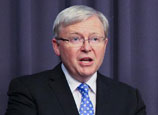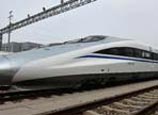
BEIJING, June 28 (Xinhua) -- Former U.S. spy agency contractor Edward Snowden's revelations of widespread snooping by his country's security authorities have stirred a fresh round of finger-pointing on cyber issues on the world arena.
The quarrels, like a fever, sometimes are not a bad thing. They raise the alarm bells towards the urgency to address the root cause of the problem -- in this case, a lack of international norms to govern the cyberspace, said experts participating in the World Peace Forum 2013 in Beijing on June 27-28.
They also warned the scale of cyber theft is so large to the extent that it hurts national interests of many countries where the Internet has become an important infrastructure playing a significant role in such fields as economy, social development and national defense.
Many countries are becoming increasingly vulnerable to cyber attacks, former U.S. ambassador to China J. Stapleton Roy said, noting the issue has become a focus of a large number of governments around the world.
Besides, cyber security has become a major irritant in several bilateral relations, hurting mutual trust and friendship between countries, Roy said.
Chen Xiaogong, a member of Foreign Affairs Committee of the National People's Congress, described cyber space as a new battle field, cautioning that if countries should allow cyber arms race to take place, it could cause consequences worse than a nuclear war.
Acknowledging the urgency to contain the disordering of the cyberspace and set up relevant international norms, experts also expressed optimistic over the world community's ability to do so.
Experts noted that China and the United States, the world's two largest economies, have put the issue of cyber security on top of their cooperation.
Chinese President Xi Jinping and his U.S. counterpart Barack Obama highlighted the importance of cyber security in their summit earlier this month in the U.S. state of California.
In the meantime, the two countries have been preparing a working group specialized in cyber security and they have agreed to hold high-level talks in July.
However, the surprising revelation by Snowden of widespread hacking by U.S. National Security Agency in China's Hong Kong has caused grave concerns from Beijing.
"The United States wants a quick solution to the problem and minimize its negative influence on U.S.-China relations," international relations professor Jia Qingguo of Peking University told Xinhua.
"But the key lies in how much progress the two countries will achieve in July's strategic and economic dialogue. If they can make notable progress, Snowden's adverse impact on bilateral relations will be repaired pretty soon."
The Chinese expert suggested Beijing and Washington try to find broader common grounds on cyber cooperation. The two countries have many common interests in deterring cyber attacks on infrastructure, military and even nuclear facilities, which "could be as terrible as terrorism."
On Internet spying programs, both countries may need to draw up a framework since there is a fine line between attacks and information collection, said the expert.
Still, cyber security is rather a multilateral issue than a bilateral one, which cannot be realized by cooperation only between China and the United States, Chen said.
He suggested countries use the United Nations and other global organizations as platforms to carry out multilateral talks on cyber security and devise rules.

















 A growing thirst for water safety
A growing thirst for water safety


![]()
